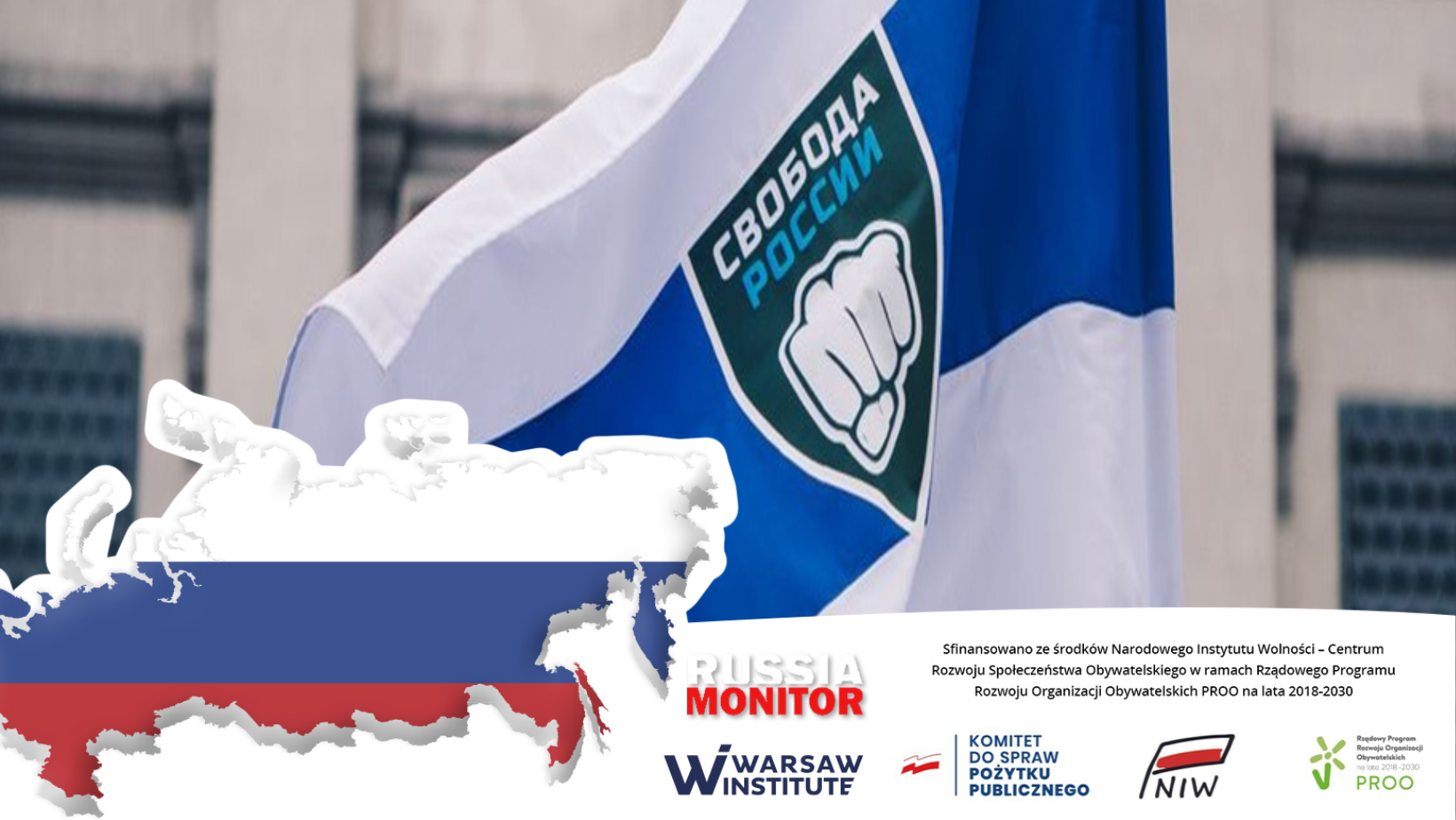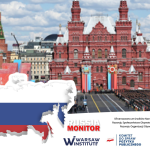
Russia Monitor is a review of the most important events related to Russian internal and external security, as well as its foreign policies.
Date: 24 May 2023 Author: Grzegorz Kuczyński
Anti-Putin Russians Launch Cross-Border Attack on Belgorod
Anti-Putin militia entered the western Russian region of Belgorod not to seize Russian territory or dismantle Russian forces. The aim was to exert psychological pressure on Russia in four aspects. First, that was to show that the regime was incapable of protecting its territory while continuing an assault on Ukraine. Secondly, it was a reminder that among the Russians some oppose Putin and his regime. Third, it was designed to deflect Moscow’s attention from the front line where a Ukrainian counteroffensive is drawing near. Last but not least, the incursion sought to cover claims that the eastern city of Bakhmut was under Russian control after months of heavy battle.

In the afternoon of May 23, Russian forces were still fighting for control of parts of the border region of Belgorod. The anti-Putin militia Freedom of Russia Legion claims to have overrun a village in Russia’s border region of Belgorod, where fighting has flared up. The Russian defense ministry on May 23 claimed it had killed 70 intruders and repelled many others. Casualties are notoriously difficult to estimate in wartime conditions. The Russian report did not give any indication of casualties. A video posted to social media showed a Russian border guard who had been killed. Four armored combat vehicles and five pickup trucks used by the attackers were destroyed. Kremlin spokesman Dmitry Peskov said that Russia’s war with Ukraine was required to “prevent such attacks in the future.” Russian facilities are being hit in drone attacks. Separate attacks on houses and administrative buildings that sheltered local branches of the FSB and the interior ministry were damaged in two towns in the region, Borisovka and Graivoron. Some residents have fled their homes, but there was no mass evacuation in the area. The incursion occurred on the morning of May 22. Initially, the region came under fire from a sabotage group that had penetrated the area from Ukraine. A few hours later, local authorities confirmed that such a group has incurred into Russian territory. The incursion into Russian territory may be the biggest since the Kremlin launched its war against Ukraine––an attack that surprised both the Russian government and its propaganda machine. The incursion began at 9 am when Belgorod residents started to report explosions in many parts of the region. The city’s anti-aircraft defense system has been activated while some missiles or their debris hit homes. Shelling damaged an administrative building and a kindergarten. Five hours later, the governor of Belgorod raised an alarm with the Kremlin, saying a Ukrainian “sabotage group” had entered Russian territory in the Graivoron district. Later that day, he said he was carrying out a counterterrorism operation. For the period of the counter-terror operation, “various measures and restrictions have been introduced, from individuals’ identity checks to the suspension of the operation of hazardous production facilities and organizations using explosive, radioactive, chemical and biologically dangerous substances.” Reports tend to vary, as some claim the group did not penetrate Graivoron while fighting occurred in villages between the town and the border crossing. The town of Graivoron came under mortar and rocket fire. It was not reported how big the sabotage group was. According to some Russian Telegram channels, it might include between 80 and 100 people. Kyiv denied any direct involvement by the Ukrainian Armed Forces. Ukrainian presidential adviser Mykhailo Podolyak said Kyiv had nothing to do with an armed operation in Russia’s Belgorod region. He portrayed the incident as an uprising against the Kremlin by Russian partisans. The attack was, however, designed by the Ukrainian military to mislead the Russians, cause panic, and provoke Russian forces to launch a combat assault. The incursion into Russian territory may be the biggest since the Kremlin launched its war against Ukraine. It might have been designed to discredit the Kremlin, incapable of ensuring the security of its citizens. The incursion was surprising to the Kremlin, the military, and the state propaganda machine which had no clue how to cover the events near Belgorod.
Support Us
If content prepared by Warsaw Institute team is useful for you, please support our actions. Donations from private persons are necessary for the continuation of our mission.
All texts published by the Warsaw Institute Foundation may be disseminated on the condition that their origin is credited. Images may not be used without permission.
















